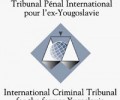Albert Nebih and Skender Isufi Compensated for Illegal Detention in 1999 and 2000
On 18 December 2008, the Humanitarian Law Center (HLC) received a judgement rendered by the First Municipal Court in Belgrade, which obliges the Serbia to pay 185,000 RSD to Albert Nebih Domanek/Damanek [Glogoac/Gllogovc municipality] and Skender Isufi from Novo Čikatovo/Qikatove e Re [Glogovac/Gllogovc municipality] each for the state’s responsibility for the illegal detention of Albert Nebih and Skender Isufi of six and 11 months respectively in 1999 and 2000.
HLC, on behalf of Albert Nebih and Skender Isufi, filed a compensation lawsuit against the Republic of Serbia on 17 May 2007 as part of the HLC support programme to the victims of human rights violations in exercising their right to reparation. Because of the inappropriately small amount of the compensation, HLC will lodge an appeal with the Belgrade District Court within the legal timeline.
When Serb security forces shelled the Albanian village of Domanek/Damanek, Glogovac/Gllogovc municipality on 26 March 1999, Albert Nebih (17) took refuge with his family in the village of Štrubulov/Shtrubullove in the same municipality. Members of the Serbian Ministry of Interior and Yugoslav Army surrounded this village as well on 28 May 1999. Three members of the Yugoslav Army entered the house in which Albert Nebih resided with 20 members of his family and ordered him, his father Xhafer Nebih, and cousin Ekrem Nebih to search the house. During the search soldiers hit them with rifle butts, after which they took them out on the street and ordered them to stand with their faces directed at a wall and with their hands raised in the air. They lined them up and took them to the village of Novo Čikatovo/Qikatove e Re. From there they were transported by truck to Glogovac/Gllogovc. In Glogovac/Gllogovc their personal details were taken; a paraffin test was conducted to ascertain whether they had recently used firearms, and they were placed in a warehouse where more Albanian civilians were already being held. The following evening, soldiers ordered the people to leave the warehouse and board buses. According to Albert Nebih, there were several buses and 50 men in each of them. Around 18:00 they arrived at the prison in Lipljan/Lipjan. As they were getting off the buses, prison guards beat them. After they were registered, guards confiscated their personal effects and put the detainees inside the cells. Conditions in the Lipljan/Lipjan prison were poor. They received a quarter of one stale bread loaf and prison cells were overcrowded. After 12 days, members of the Serbian Ministry of Interior transferred Albert Nebih and other detained Albanians to the Požarevac prison. As they were getting off the buses, police officers and prison guards beat them. The beating continued until they were inside the cells. Albanian detainees in the Požarevac Correctional Facility were neither allowed to go for walks nor to sit on the beds. They were allowed a bath once in two weeks. During their detention in the Požarevac Correctional Facility, the police never interrogated Albert and he was not issued a detention order or an indictment. Albert Nebih was released on 20 November 1999. In March 2005, he was diagnosed with the Post Traumatic Stress Disorder (PTSD), as a consequence of torture.
On the same day when Albert Nebih was arrested [28 May 1999], four members of the Serb security forces also entered the house of Skender Isufi in the village of Novo Čikatovo/Qikatove e Re to which a lot of refugees from the surrounding villages had fled. They selected 13 men and beat them with rifle butts for hours and then took them to the river Drenica where they ordered them to go enter the water and roll in mud. Police officers and soldiers shot repeatedly and threatened to kill the detainees. Three hours later, they took them to Glogovac/Gllogovc to the Qerima Desiskuja bar where they continued hitting them with metal bars and baseball bats. Then soldiers brought a bucket of water for the detainees to wash away the blood after which they were forced to drink that water. The following day they called some Albanians by their names and took them to the nearby damaged facility where they interrogated them. Four police inspectors questioned Skender Isufi about the Kosovo Liberation Army (KLA). They interrogated him for an entire day throughout which they beat him continuously. When he would lose consciousness, they would take him to the toilet to bring him round and after a short period of time they would continue interrogating and beating him. After the interrogation, they took him back to the facility where he had previously been held. The following morning they took Albanian detainees by buses to the Lipljan prison and only after the fifth day of detention did prison guards let them use the toilet. Several days later they drove them by buses to the Požarevac Correctional Facility where Skender was detained until 14 April 2000 when he was released upon a decision of the Serbian Ministry of Justice. He also never received a single document on detention and there were no indictments or proceedings initiated against him. He was not even interrogated. He has been receiving treatment for Post Traumatic Stress Disorder since March 2004.
Point of Contact:
Sandra Orlović, Project Coordinator
+381 11 3444-313






